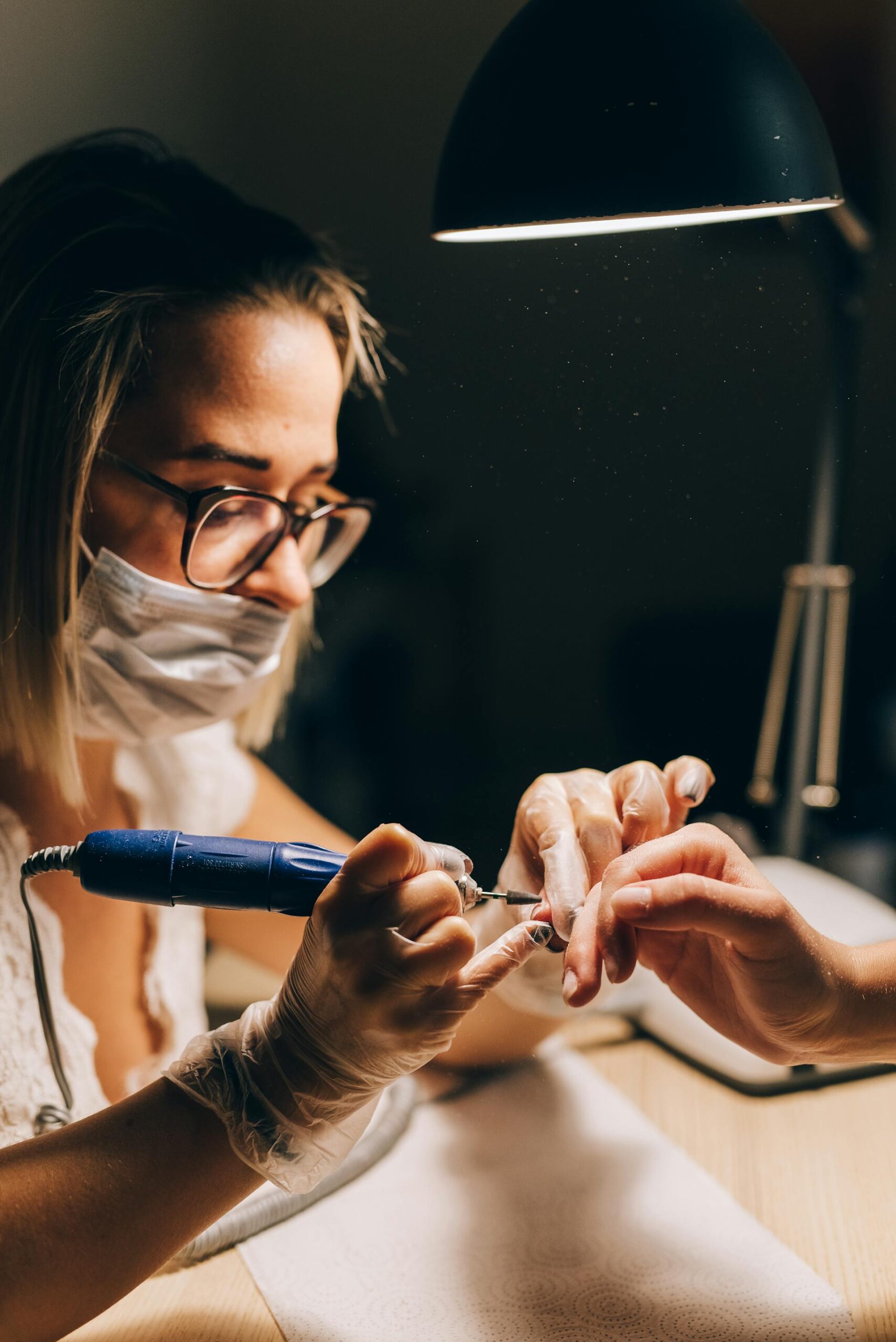Politeness is typically appreciated in any professional setting. However, in the nuanced world of nail salons, even well-intentioned behavior can sometimes be more hindering than helpful. Nail technicians are trained professionals who rely on precision, hygiene, and efficiency to deliver high-quality services. While clients may think they’re being considerate, some habits can disrupt workflow, create awkwardness, or even compromise results. Here are some “polite” habits that nail techs secretly wish clients would reconsider.
1. Apologizing Excessively
It might seem courteous to apologize frequently — for your hands being dry, your cuticles being messy, or your nails being “ugly” — but for nail techs, this habit can be emotionally draining. They work with all kinds of hands and feet daily and have seen everything from nail biting to fungal infections. Constant apologies often reflect a client’s insecurity rather than something the technician is truly concerned about.
Why it’s disliked:
It places emotional labor on the technician to constantly reassure you. Instead, trust their professionalism and let them do what they do best.
2. Trying to “Help” by Moving Your Hands
You might think you’re helping by turning your hand, lifting your finger, or repositioning on your own. However, nail techs are trained to hold your hands and fingers in specific ways for precision and control. When you move unexpectedly, it can mess up a polish application or even lead to injury during cuticle trimming.
Why it’s disliked:
It breaks the technician’s rhythm and control. The best thing you can do is relax your hand and let them guide it.
3. Coming in Sick but Being “Polite” About It
Clients who come in with a cold or flu sometimes try to mask their symptoms with polite disclaimers like, “I’m just a little stuffy,” or “I took medicine, I’ll be fine.” While they might mean well by not canceling last minute, they are exposing the technician — and everyone else — to illness.
Why it’s disliked:
It puts the technician’s health at risk, especially since they work in close proximity to clients all day. Rescheduling is always appreciated more than powering through an appointment while sick.
4. Talking Nonstop to Avoid Awkwardness
Many clients chat to fill the silence, believing it makes things more pleasant. While nail techs are often happy to make small talk, they also need to concentrate — especially during intricate work like nail art or shaping. Constant chatter can be distracting.
Why it’s disliked:
It can interfere with focus. If a technician is being quiet, it’s usually because they’re concentrating, not being rude.
5. Tipping in a Way That’s “Nice” But Confusing
Tipping is always appreciated, but confusion arises when clients try to be extra thoughtful with complicated methods — like leaving cash somewhere without saying anything, or tipping awkwardly late (e.g., sending money via app hours later). The intention is good, but the process can be unclear.
Why it’s disliked:
It leads to uncertainty about whether a tip was given or not. Clear, straightforward tipping — either at checkout or with a polite note — is always preferred.
6. Booking Short Notice “Just to Fill a Spot”
Some clients think they’re helping by booking last-minute appointments, especially during slow periods. While this may seem supportive, it can actually be stressful if it disrupts the technician’s break, meal, or plans to catch up on other tasks.
Why it’s disliked:
Nail techs appreciate loyalty and support, but last-minute bookings should be respectful of their time and availability.
7. Over-explaining Preferences
Clients sometimes go overboard explaining how they like their nails filed, painted, or shaped — repeating the same instructions throughout the session. While it’s good to be clear about preferences, over-directing can feel like micromanaging.
Why it’s disliked:
It can come off as mistrustful, even if well-intentioned. Clear communication upfront is welcome, but after that, it’s best to let the tech do their job.
8. Bringing Extra Guests to “Keep You Company”
Bringing a friend or child to an appointment may feel harmless, especially if they’re quiet. But this often makes the nail tech feel pressure to entertain or accommodate extra people, and it can create clutter or distractions in a shared salon space.
Why it’s disliked:
It disrupts the flow of the salon and may make other clients or staff uncomfortable. It’s always polite to come alone unless the salon explicitly says guests are welcome.
9. Showing Up Early Without Asking
Punctuality is usually a good habit. However, arriving very early (15–30 minutes) can throw off a technician’s schedule. They may be finishing with another client or using that time for cleaning or rest. While you may think you’re being respectful of their time, showing up too early can cause pressure or interruption.
Why it’s disliked:
It disrupts their prep routine. Arriving 5 minutes early or exactly on time is ideal unless the salon says otherwise.
10. Staying After Your Appointment Ends
Some clients linger after their nails are done — chatting, drying longer than needed, or browsing. While it’s a sign that they feel comfortable, it can cause the next appointment to start late or delay cleanup.
Why it’s disliked:
Time is money in the beauty industry. Nail techs usually have back-to-back appointments, so overstaying can throw off their whole day.
Conclusion
Politeness and good intentions go a long way — but being mindful of a nail technician’s workflow, time, and expertise is even more appreciated. Many habits we believe are considerate actually stem from our own desire to be helpful or avoid awkwardness, rather than understanding what the technician needs.
Instead of over-apologizing or over-directing, focus on trust, communication, and respecting boundaries. Relax, let the professionals work their magic, and enjoy the pampering experience — because when you do, your nail tech will appreciate you more than you know.

